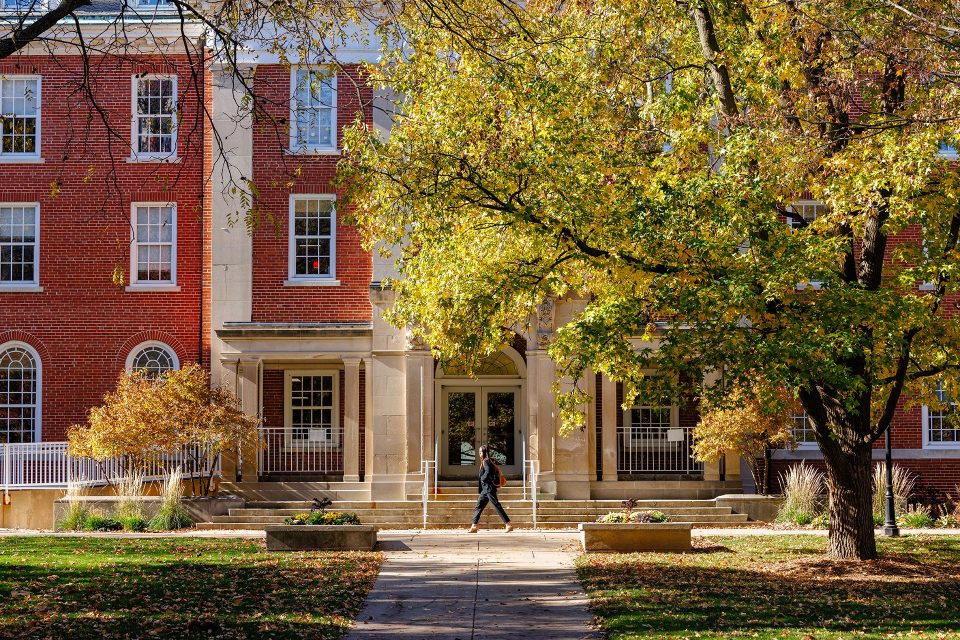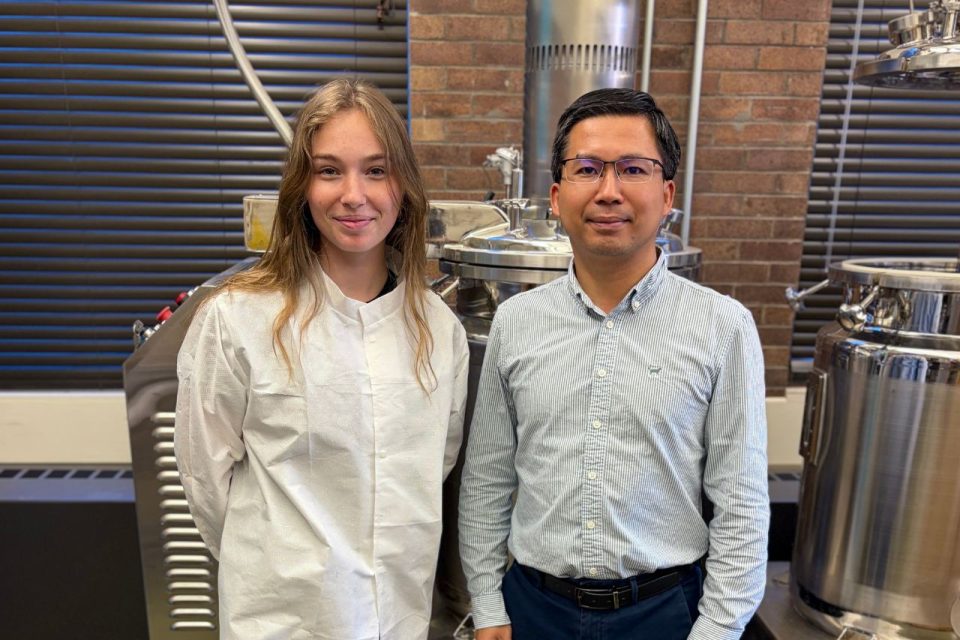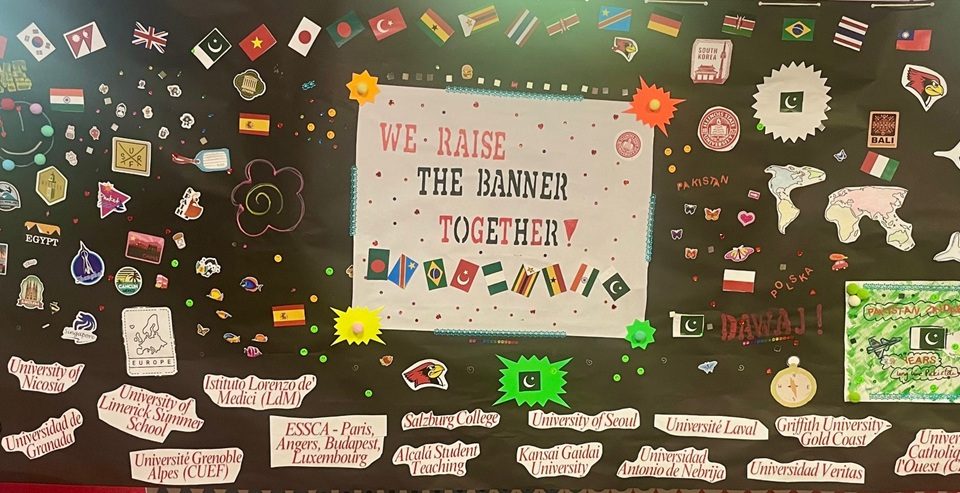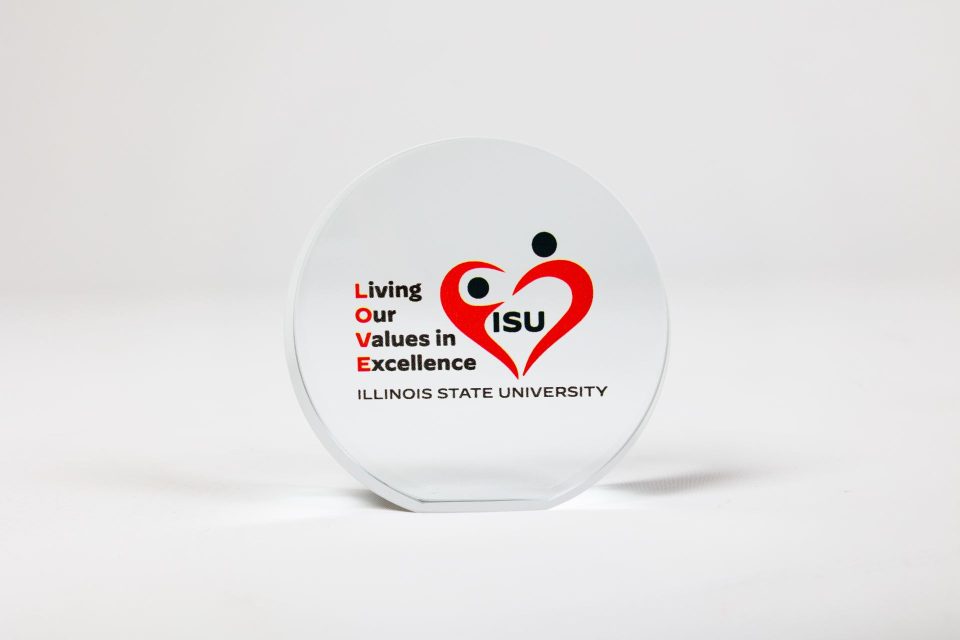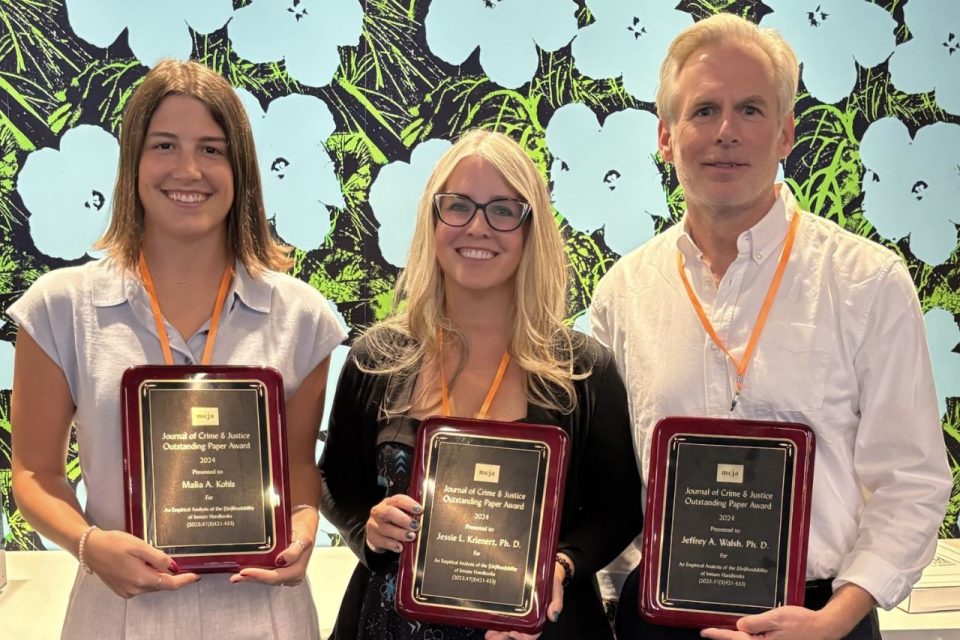Meet the September 2024 GradBird Scholar: Alina Niftulaeva
The Graduate School has selected Alina Niftulaeva as its September 2024 GradBird Scholar recipient. GradBird Scholar is an initiative to recognize graduate students for their scholarly endeavors at Illinois State University.
Niftulaeva is an international student from Dagestan, a linguistically and ethnically diverse republic in Russia. After receiving her bachelor’s degree in linguistics in Russia, she decided to pursue a master’s in communication at Illinois State. Working full time in the media during her undergraduate career, Niftulaeva came to Illinois State to deepen her knowledge through more academic course work and gain expertise in the communication field. Outside of the classroom, she enjoys volunteering in the community, cooking dishes from around the world, and learning new languages.
What is your favorite part of your program?
I appreciate the encouragement and provision of all the necessary resources that motivate master’s students to engage in scholarly work. Beyond the curriculum, all of my professors have been deeply invested in my success from the beginning. Before I even applied to the program, I had a video call with the current associate director of the School of Communication, Dr. Rebecca Hayes. It was the first time in my search for a university that I felt the program’s representatives were genuinely interested in me and my aspirations. Every professor here wants to see you succeed, and every staff member is eager to help in any way they can. This creates an extremely tight-knit community of peers and mentors moving in the same direction. I’m extremely grateful for being accepted into this program.
Shoutout to my amazing professors and cohort–we rock!
Do you work with a specific faculty/staff member to help with your research? What has your experience been like working with them?
I’ve been very lucky to have a chance to work with Dr. Caleb Carr on a few of my current projects. I had never taken a class with him and was the only first-year student on our team, but he made sure I was able to contribute in any way possible, and most importantly, to learn how to do good scholarly work. I think when it comes to working in academia, a sense of humor and light-hearted conversations are highly underappreciated, which are qualities that I greatly admire in him. My experience working with him was wonderful and made me really interested and excited about doing research.
Can you explain your research and the importance of it within your field?
Imagine you’re signing up for a new exercise class. Before you start, you get a piece of paper that explains what the class involves, any risks, and your rights. This paper is like a consent form in research studies. It’s meant to make sure you know what you’re getting into before you agree to participate.
In “Words, words, words: participants do not read consent forms in communication research,” we looked at how much time people actually spend reading consent forms in communication studies. We found that, on average, people spend only about 35 seconds on them. That’s not a lot of time to read or understand what’s on the form. Despite the forms being there to help people understand what they’re signing up for, many don’t actually read them carefully. We also found that things like the length of the form or complexity don’t affect how much time people spend on it.
This study is important because it brings up an actual problem: If people aren’t spending enough time on consent forms to read them, then they might not be fully aware of what they’re agreeing to. This means the process of getting informed consent—making sure people know what they’re getting into—might not be working as well as it should.
Why do you enjoy researching this topic and what more do you hope to learn about it?
I find researching this topic fascinating because it addresses a key issue in research ethics: ensuring that participants truly understand what they’re agreeing to. If people don’t spend enough time reading consent forms, the whole process of informing them becomes ineffective. Understanding why people skim or skip these documents can reveal important details to improve how we present them. I hope to learn how to make consent forms more engaging and easier to understand so that participants are more likely to read them thoroughly. I’m also interested in understanding why people don’t pay much attention to these forms and how different types of research might be affected.
What do you hope further research about this topic will do to benefit the greater of society?
Further research can benefit by making the informed consent process more effective and transparent. This can lead to more ethical research practices, better protection for participants, and increased trust in the research process.
Would you like to highlight anything else about your research or promote anything specific you are involved in?
I would like to thank the GradBird Scholar initiative and selection committee for recognizing research in communication studies and bringing more awareness to different opportunities to conduct research within Illinois State University. I was greatly inspired by previously recognized GradBirds and their hard work in their respective fields. I would also like to mention that this research article will be presented at the National Communication Association’s conference this November!
Latest Publications
- HR news and notes for October 2025HR news and notes is a monthly column featuring important updates for faculty and staff.
- CAST Research Fellow Dr. Liangcheng Yang advances biogas optimizationDr. Liangcheng Yang, a research fellow in CAST at Illinois State University, is advancing sustainable energy by improving biogas production through innovative anaerobic digestion research.
- Office of International Engagement Celebrates Homecoming Week with Cultural Banner DisplayDuring Homecoming Week, the Office of International Engagement invited students, faculty, and staff to take part in a fun and creative project: a collaborative banner celebrating Illinois State University’s international community.
- Secretary of State mobile office, October 28, 2025The Secretary of State's Office will provide services on October 28, 2025, from 10 a.m.-3 p.m., in the Spotlight Room of the Bone Student Center.
- Kristen Bernas honored as first LOVE Award recipient for exemplary collaborationKristen Bernas is the inaugural recipient of the Living Our Values in Excellence (LOVE) Award.
- Illinois State professors and alum honored with Outstanding Paper Award for groundbreaking study on inmate handbook readabilityDr. Jessie Krienert and Dr. Jeffrey Walsh from Illinois State University, along with alum Malia Kohls, won the 2025 Outstanding Paper Award from the Midwestern Criminal Justice Association.








